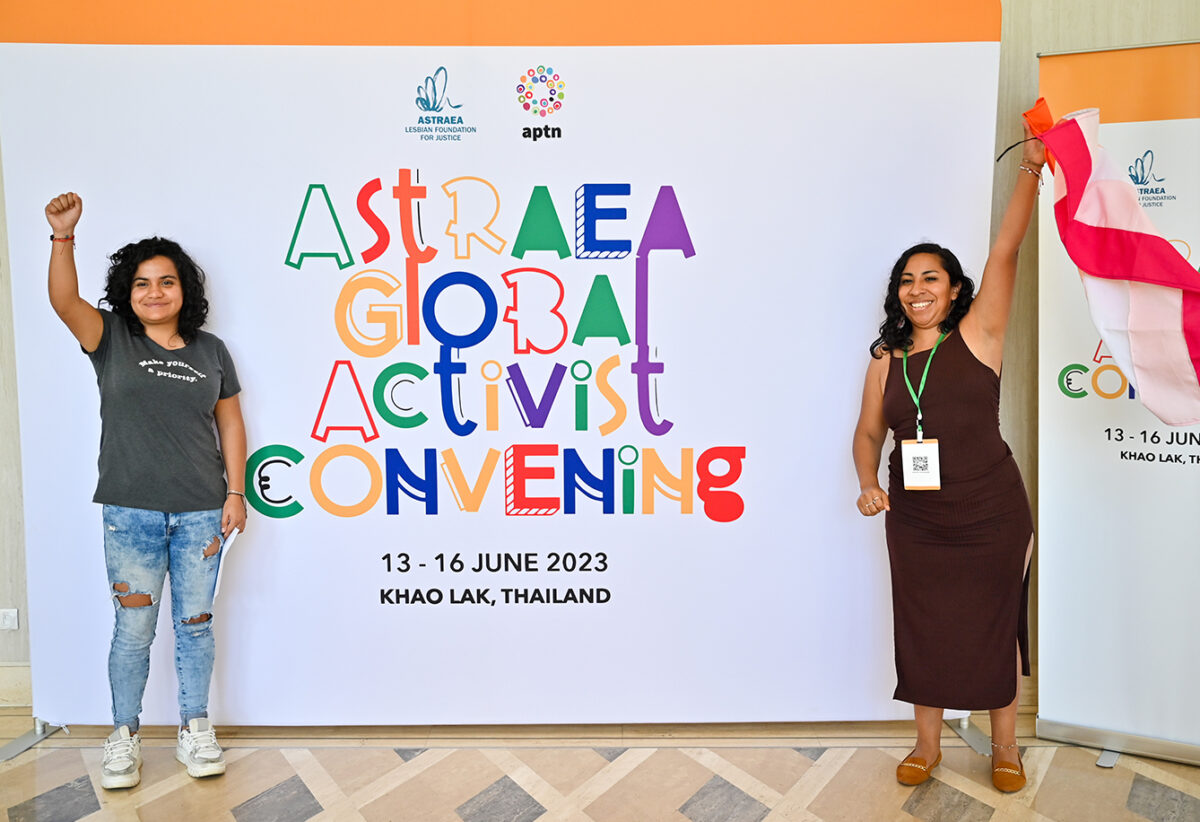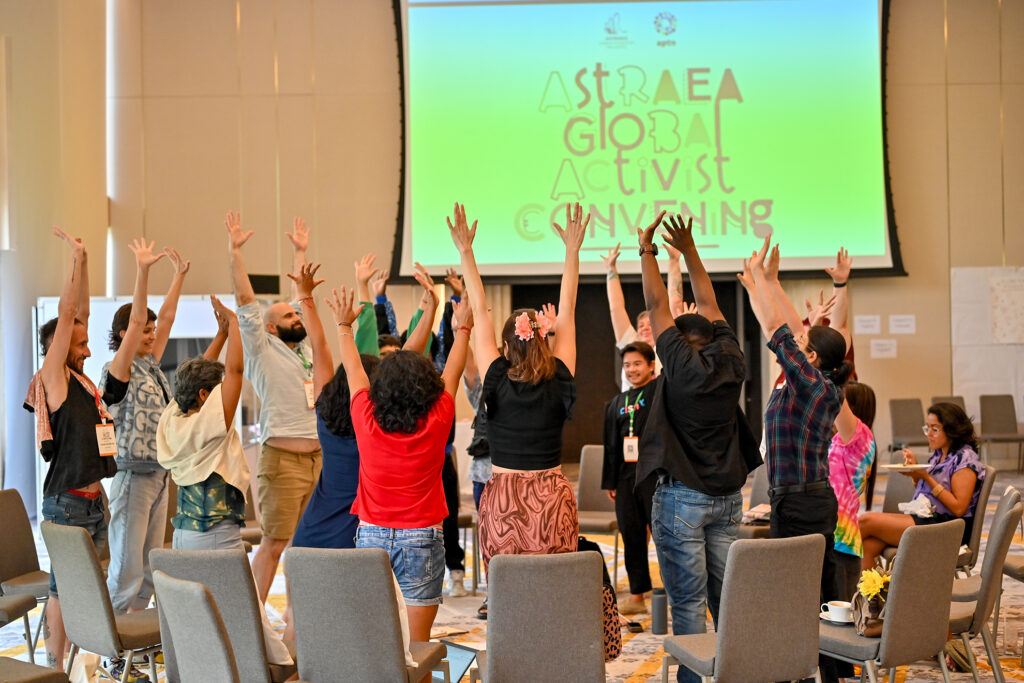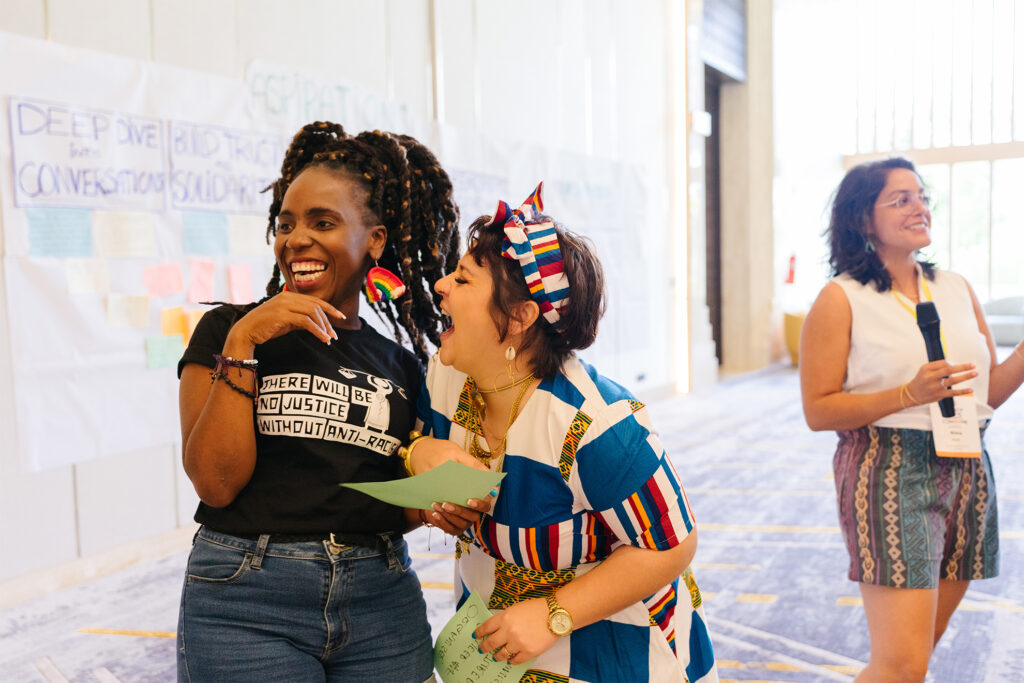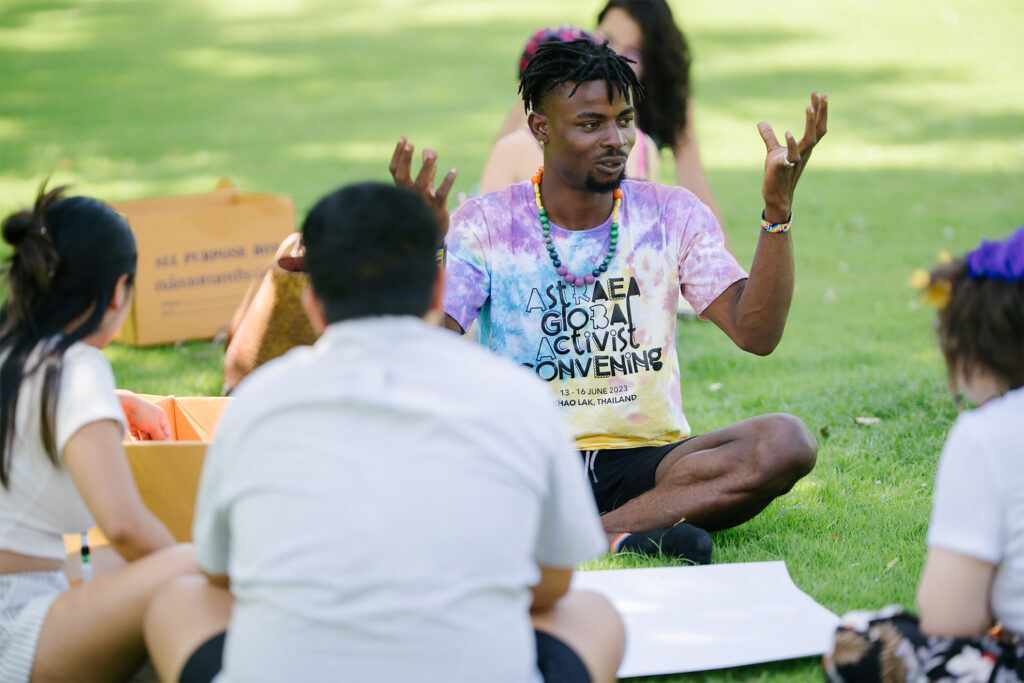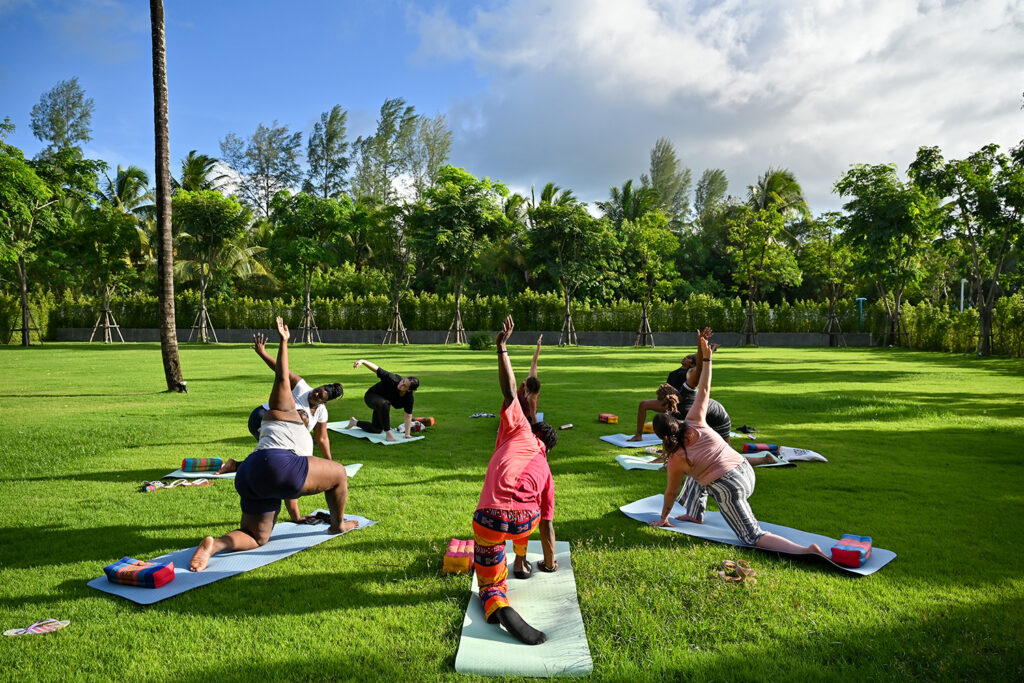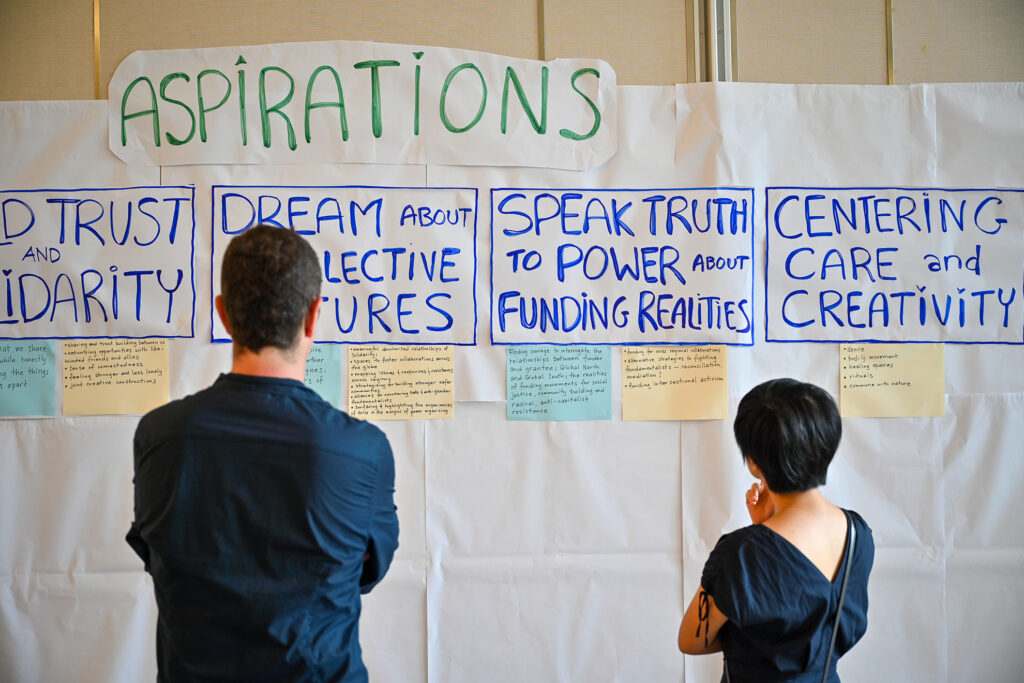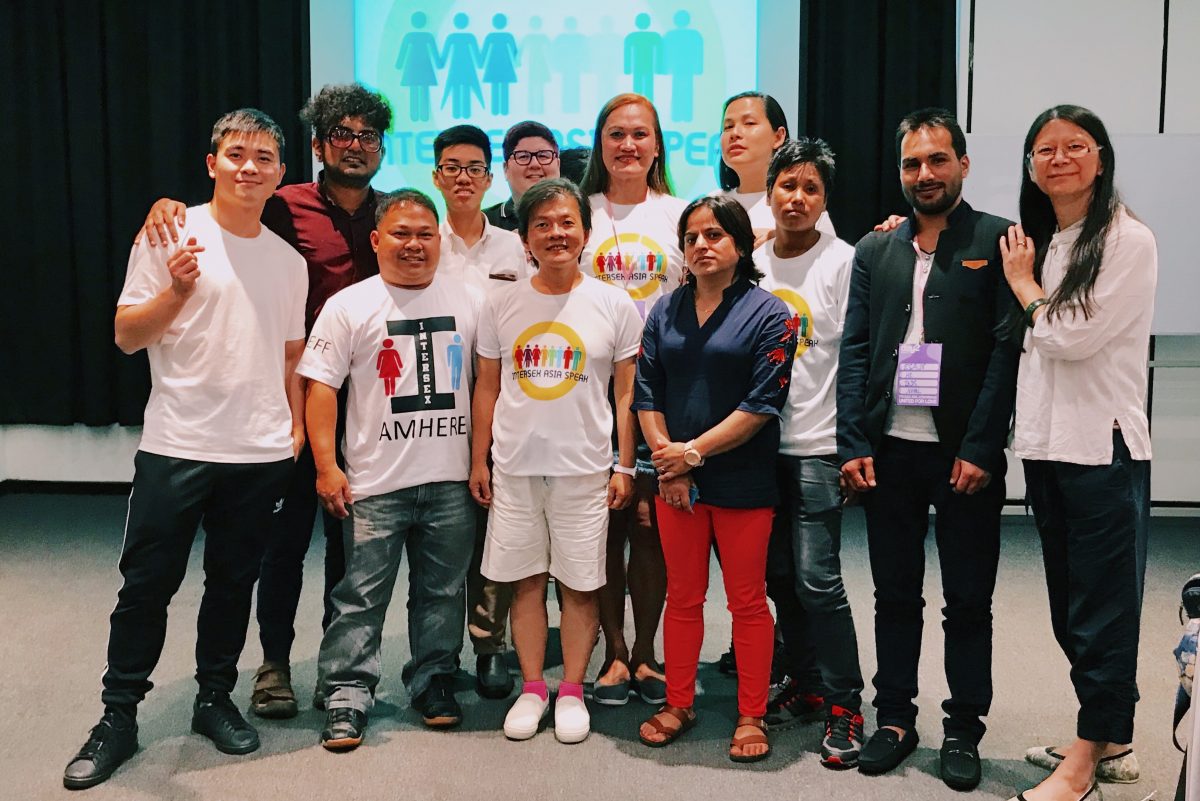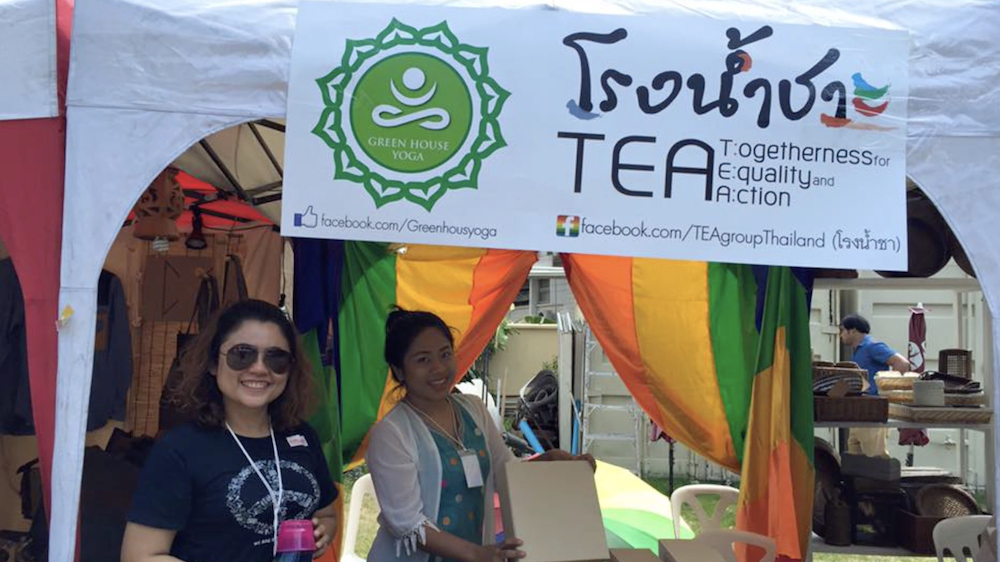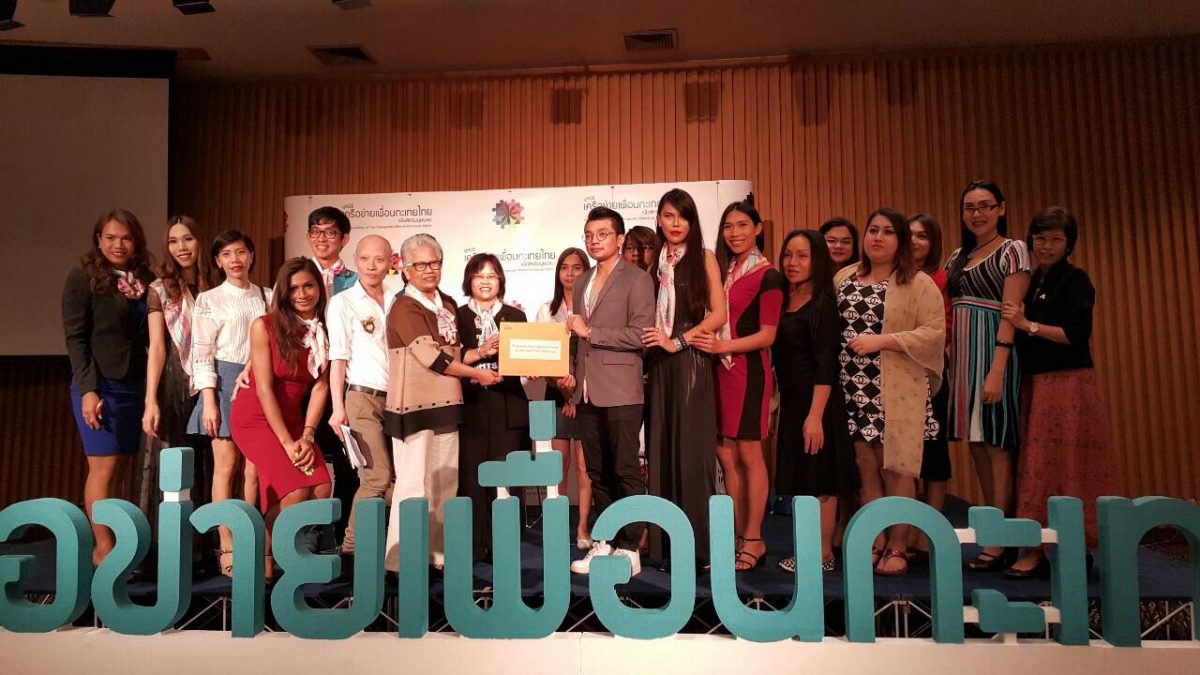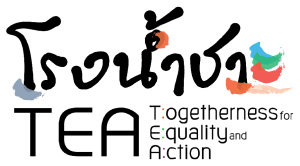Between February 8-11, the First Asian Intersex Forum took place in Bangkok, Thailand, bringing together 14 intersex people from across Asia. Together, they drafted a Public Statement by the Asian Intersex Movement, and a Media Statement announcing the new regional network, Intersex Asia. Read them here!
Media Statement by Intersex Asia
Bangkok, Thailand
11th February 2018
Between the 8th and 11th February 2018, the First Asian Intersex Forum, supported by the Intersex Human Rights Fund, took place in Bangkok, Thailand. During the Forum, participants founded Intersex Asia – the first regional network of Asian human-rights-based intersex organisations and intersex activists working for the rights of intersex people, communities and movements.
The Forum brought together 14 intersex people representing intersex organisations and communities from Hong Kong (China), India, Indonesia, Myanmar, Nepal, Pakistan, Philippines, Taiwan, Thailand and Vietnam.
Intersex Asia aims to work towards the promotion and protection of human rights of intersex people in Asia, to be a representative voice for Asian intersex people and communities, and to ensure that the rights to life, bodily integrity, physical autonomy and self-determination of intersex people are promoted and protected everywhere.
This moment is a linchpin for the Asia Intersex Movement as it marks a historical moment for the visibility and recognition of intersex human rights in Asia.
Throughout Asia, lack of awareness about intersex issues from medical professionals leads to unnecessary and inhumane medical procedures, which include ‘normalising’ surgeries and treatments on intersex infants, adolescents and adults.
Because intersex people are born with sex characteristics (including genitals, gonads, hormones and chromosome patterns) that do not fit typical binary notions of male or female bodies, intersex children and adults are often stigmatised and subjected to multiple human rights violations, including violations of their rights to health and physical integrity, to be free from torture and ill-treatment, and to equality and non-discrimination.
As intersex people in Asia, we live in a society that perpetuates discrimination, violence and killings of intersex people by a number of cultural, religious, traditional and medical beliefs and practices. Therefore, we must be supported to be the drivers of social, political and legislative changes that concern us.
Intersex Asia is an autonomous network and consists of intersex-led organisations and intersex individuals from Asian countries that work to educate about intersex issues, and raise awareness about the human rights violations and discrimination faced by intersex communities.
The Asia Intersex Forum and Intersex Asia also recall and affirm the principles of the Public Statement by the Third International Intersex Forum (known as the Malta Declaration), the Intersex Statement of the Intersex Pre-Conference at ILGA-Asia 2017, and extend the demands aimed at ending discrimination against intersex people, promoting and protecting the human rights of intersex people in Asia, and to ensure the rights to life, bodily integrity, physical autonomy and self-determination. (See Public Statement).
For more information, please contact:
- Hiker Chiu – Taiwan (Chinese, English): [email protected]
- Gopi Shankar Madurai – India (English,Tamil, Malayalam, Hindhi): [email protected], +918610539702, +919092282369, @gopishankarmdu
- Nada Chaiyajit – Thailand (Thai, English): [email protected]
- Small Luk – Hong Kong, China (Chinese, Cantonese, English): [email protected], +85251996331 (whatsapp)
- Esan Regmi – Nepal (Nepali, English): [email protected], +977 9861336738
Public Statement by the Asian Intersex Movement
Bangkok,Thailand
11th February 2018
Between the 8th and 11th February 2018, the First Asian Intersex Forum, supported by the Intersex Human Rights Fund, took place in Bangkok, Thailand. The Forum brought together 14 intersex people representing intersex organisations and communities from Hong Kong (China), India, Indonesia, Myanmar, Nepal, Pakistan, Philippines, Taiwan, Thailand and Vietnam.
Preamble
We affirm that intersex people are real, and we exist in all regions and all countries around the world, including all countries of Asia. Thus, intersex people must be supported to be the drivers of social, political and legislative changes that concern them.
We are intersex activists representing the diverse region of Asia, working together to end discrimination, and promoting and protecting the human rights of intersex people.
Demands
- To acknowledge the suffering and injustice caused to intersex people.
- To recognise that sexism, medicalisation and stigmatisation of intersex people result in significant trauma and mental health concerns.
- To remove the stigma from all the terms referring to intersex.
- To recognise that being intersex relates to biological sex characteristics, and is distinct from a person’s sexual orientation or gender identity. An intersex person may be heterosexual, lesbian, bisexual or asexual; and may identify as female, male, both or neither.
- To put an end to mutilating and ‘normalising’ practices such as genital surgeries, psychological and other medical interventions through legislative and other means. Intersex people must be empowered to make their own decisions affecting their own bodily integrity, physical autonomy and self-determination.
- To put an end to preimplantation genetic diagnosis, pre-natal screening and interventions, and selective abortion of intersex foetuses.
- To put an end to inappropriate medical practices and protocols, including the administration of medication for gender selection and medical interventions on foetuses and newborn babies, as a result of lack of awareness about intersex people and intersex variations.
- To put an end to non-consensual sterilization of intersex people.
- To depathologise variations in sex characteristics in medical practices, guidelines, protocols and classifications, such as the World Health Organisation’s International Classification of Diseases.
- To include human rights-based intersex education in antenatal counselling and support.
- To put an end to infanticide, abandonment and honor killings of intersex people.
- To end practices that force normalising surgeries on intersex children to be male as a requirement for inheritance.
- To ensure that the right to inheritance of intersex people is not denied on the ground of infertility.
- To ensure that intersex organisations and intersex peer support groups are recognised, resourced and strengthened.
- To protect intersex people from discrimination by adding the ground of sex characteristics to anti-discrimination legislation and to ensure protection against intersectional discrimination.
- To protect intersex people in the laws regarding sexual violence and harassment.
- To ensure the legal protection and support of intersex people with disabilities.
- To recognise intersex refugees need protection against discrimination and the appropriate psychosocial help.
- To ensure equal and non-discriminatory legal protection for intersex people in marriage and adoption laws.
- To protect intersex people against discrimination at the workplace.
- To create and facilitate supportive, safe and celebratory environments for intersex people, their families and surroundings.
- To provide human rights-based intersex education to empower intersex people and their families.
- To support intersex people and their families to connect and build up intersex communities.
- To ensure that intersex people have the right to full information and access to their own medical records and history.
- To protect intersex people’s right to privacy while engaging with civil and social institutions, such as hospitals, educational and governmental institutions.
- To ensure the provision of all human rights and citizenship rights to intersex people.
- In view of ensuring the bodily integrity and well-being of intersex people, autonomous non-pathologising psycho-social and peer support be available to intersex people throughout their life (as self-required), as well as to parents and/or care providers.
- To ensure that all professionals and healthcare providers that have a specific role to play in intersex people’s wellbeing are adequately trained to provide quality services.
- To provide accessible and appropriate healthcare that meet the physical and mental health needs and issues of intersex people.
- To register intersex children as females or males, with the awareness that, like all people, they may grow up to identify with a different sex or gender.
- To ensure that sex or gender classifications are amendable through a simple administrative procedure at the request of the individuals concerned. All adults and capable minors should be able to choose between female (F), male (M), non-binary or multiple options. In the future, as with race or religion, sex or gender should not be a category on birth certificates or identification documents for anybody.
- To ensure that all key partners that have a specific role to play in intersex people’s wellbeing such as, but not limited to, health care providers, parents and professionals working in the area of education, as well as society in general, are instructed on intersex issues from a human rights perspective.
- To end sex verification tests that violate the fundamental privacy and dignity of intersex people, and ensure they are able to participate in competitive sport, at all levels, in accordance with their legal sex. Intersex athletes who have been humiliated or stripped of their titles should receive reparation and reinstatement.
- To raise awareness around intersex issues and the human rights of intersex people in communities and society at large.
- To provide comprehensive sexuality education that includes references to intersex people and experiences, as well as human-rights-based intersex education at all levels of education.
- To provide adequate acknowledgement of the suffering and injustice caused to intersex people in the past, and provide adequate redress, reparation, access to justice and the right to truth.
In view of the above the Asian Intersex Movement calls on:
- International, regional and national human rights institutions to take on board, and provide visibility to intersex issues in their work.
- National governments to address the concerns raised by the Asian Intersex Movement and draw adequate solutions in direct collaboration with intersex representatives and organisations.
- National governments to stop harmful cultural practices, such as infanticide and honor killings of intersex people.
- Media agencies and sources to ensure intersex people’s right to privacy, dignity, accurate and ethical representation.
- Community leaders to engage in intersex education to dispel misconceptions and stigma around intersex people.
- Funders to engage with intersex organisations and support them in the struggle for visibility, increase their capacity, the building of knowledge and the affirmation of their human rights.
- Human rights organisations to contribute to building bridges with intersex organisations and build a basis for mutual support and meaningful engagement. This should be done in a spirit of collaboration and no-one should instrumentalise intersex issues as a means for other ends.

